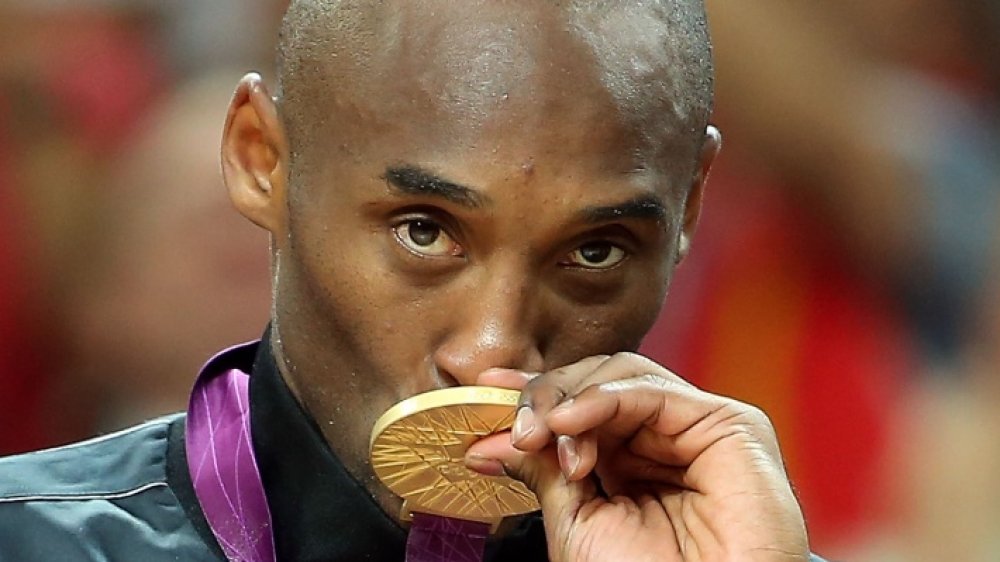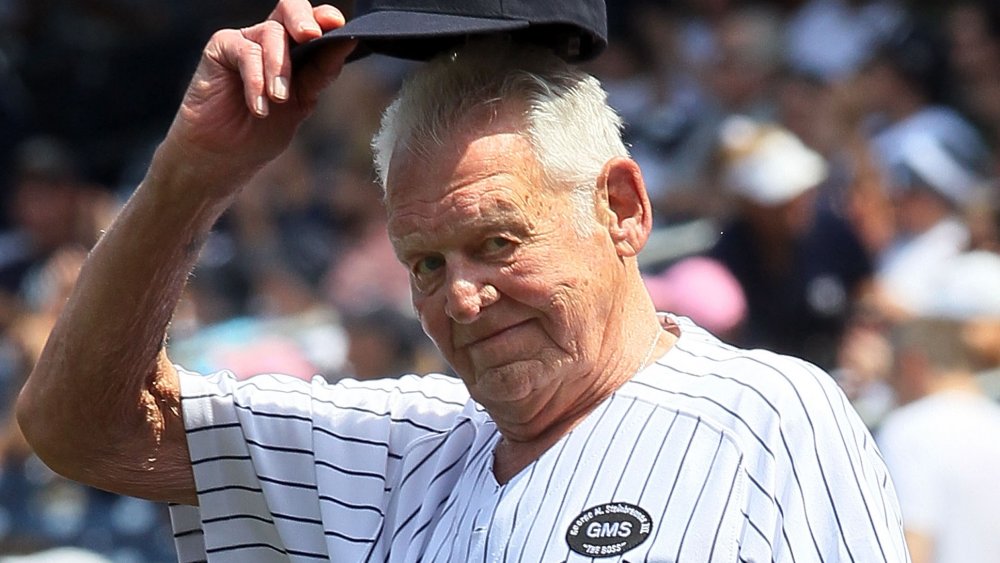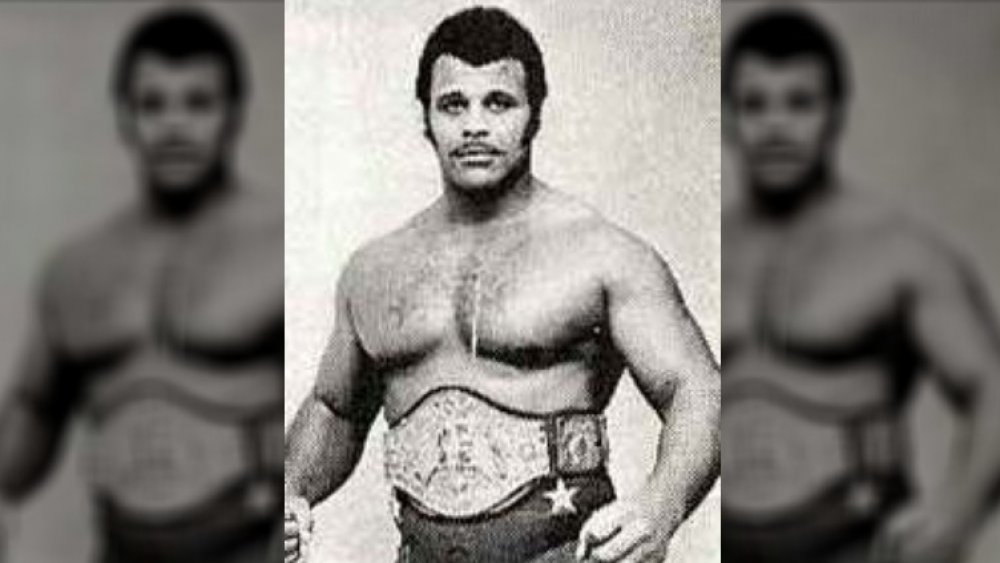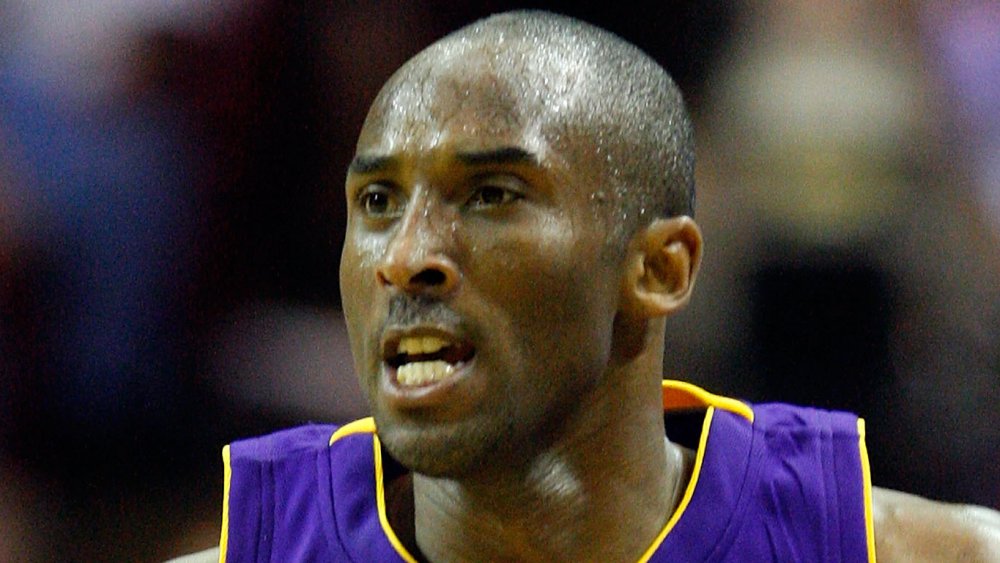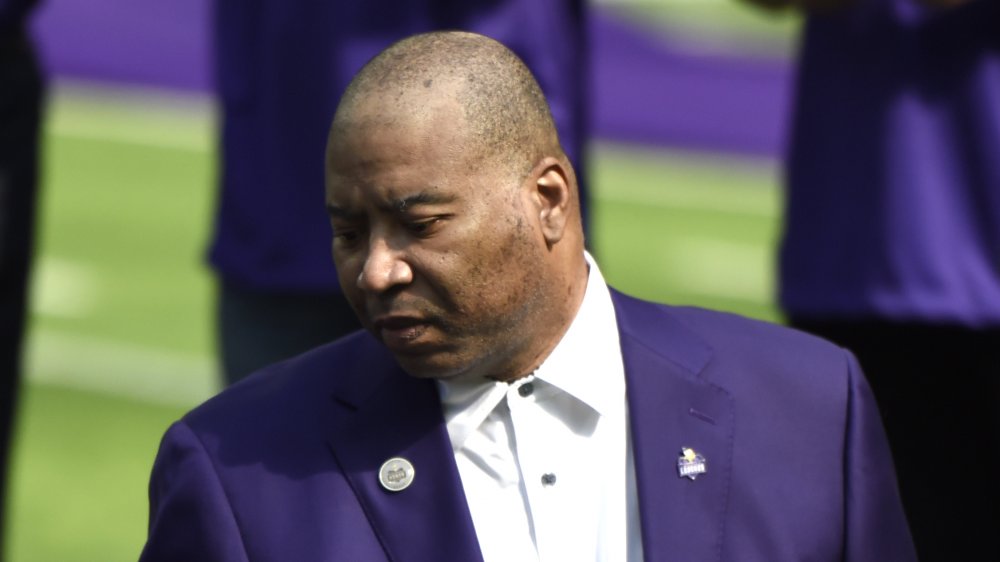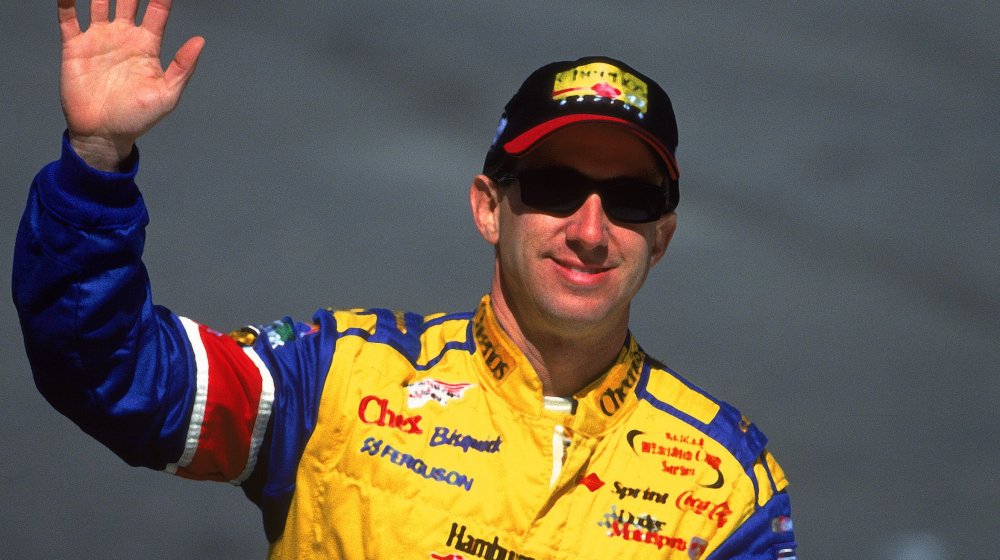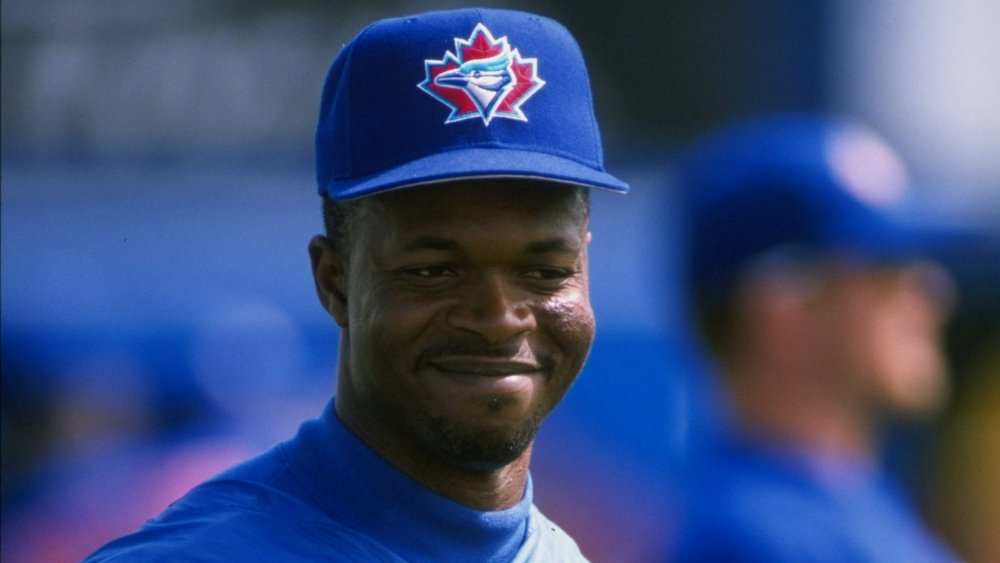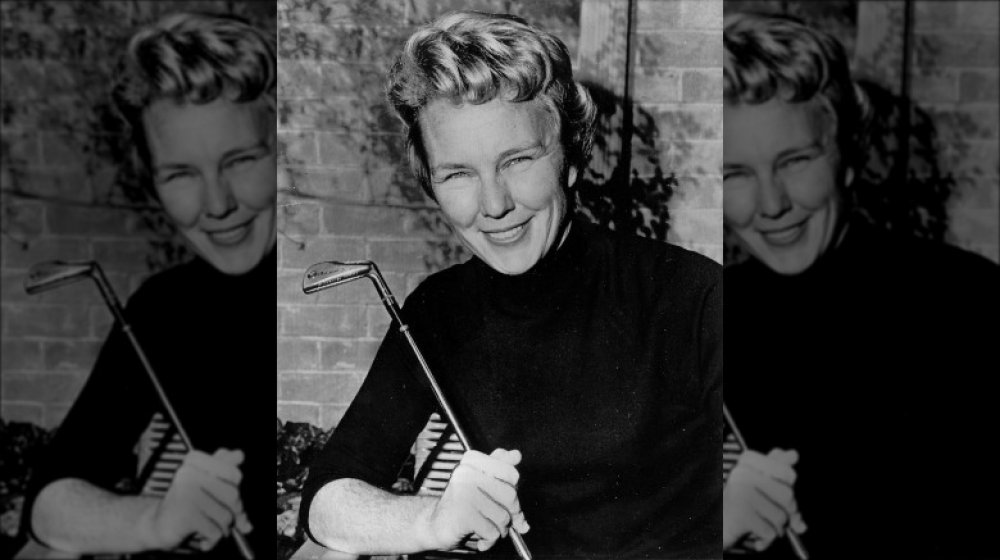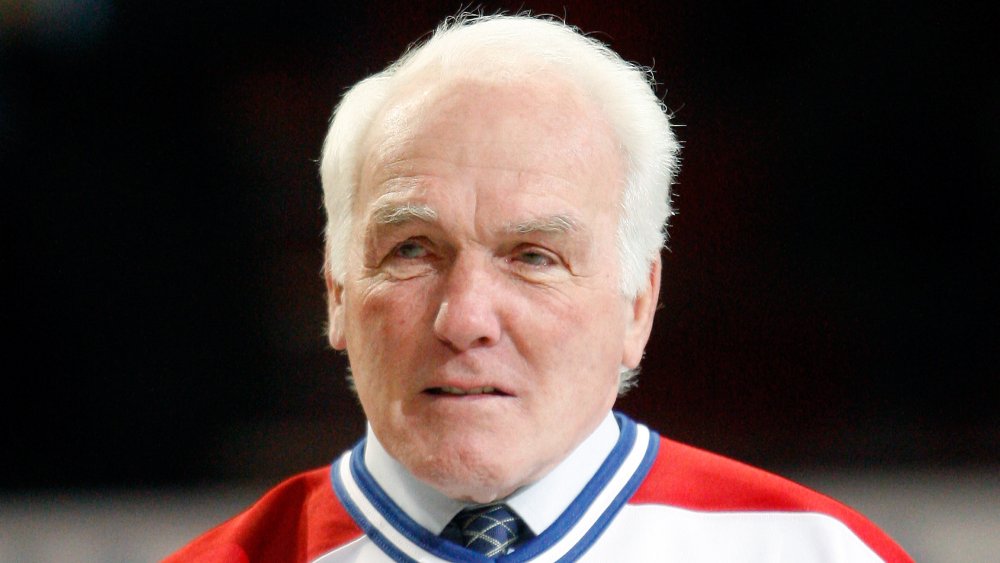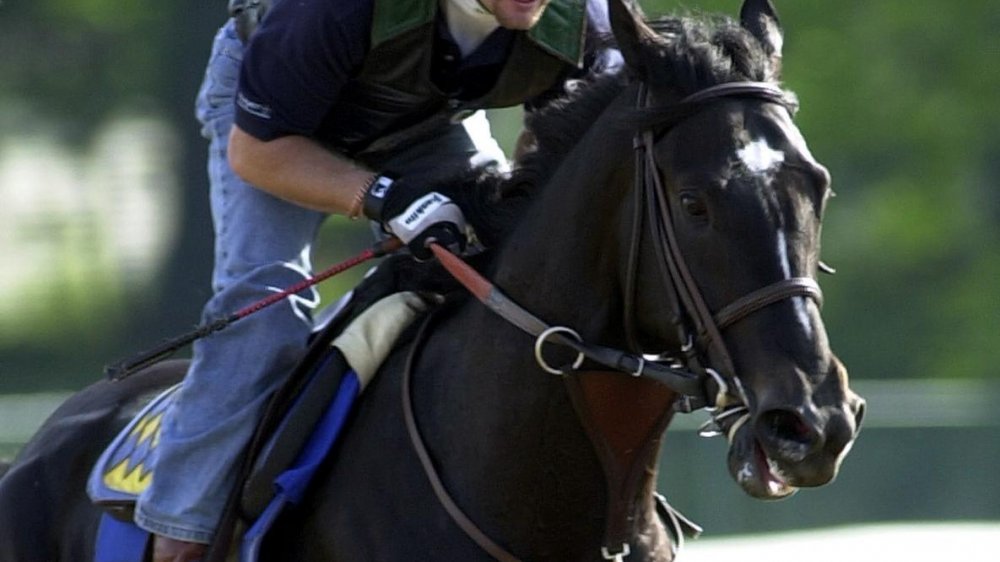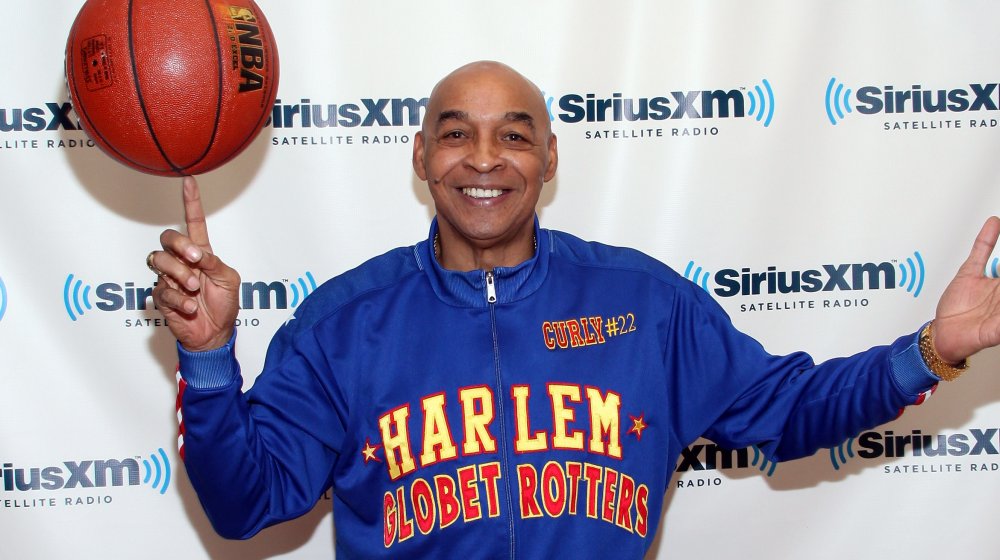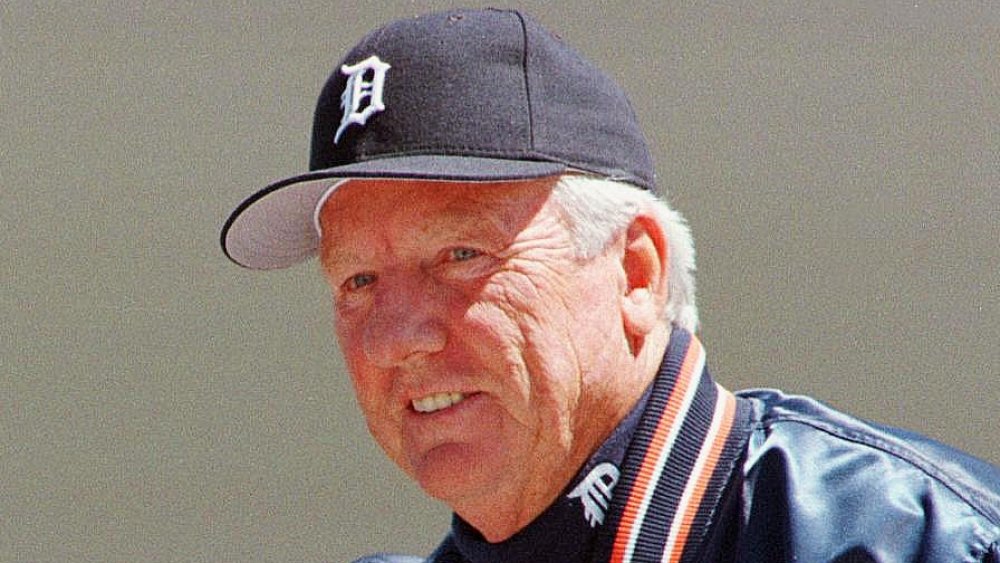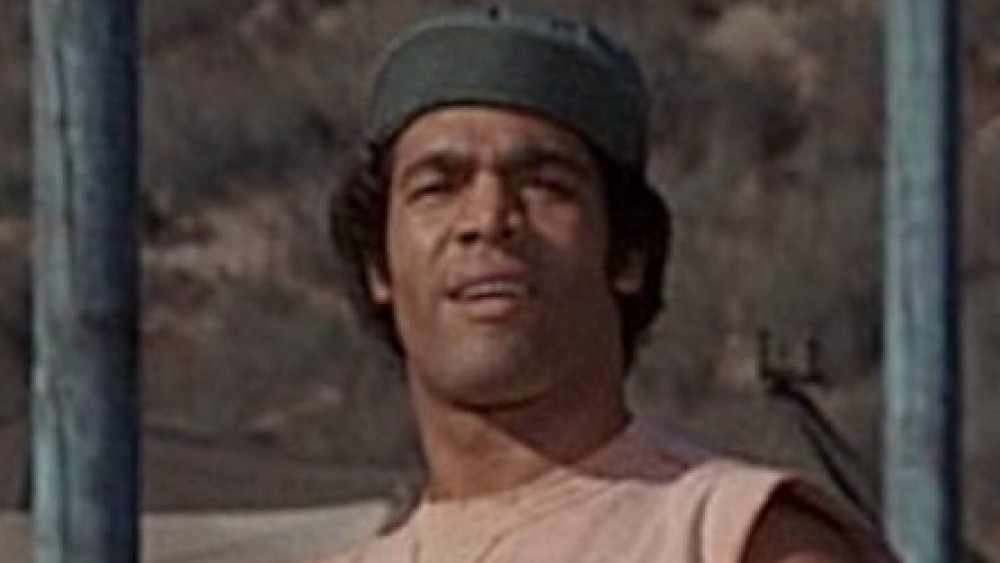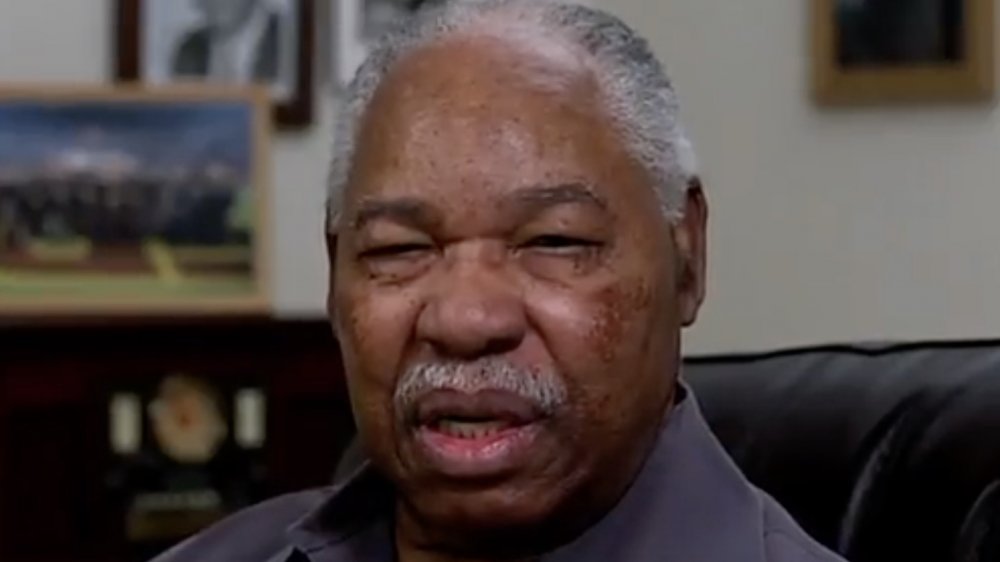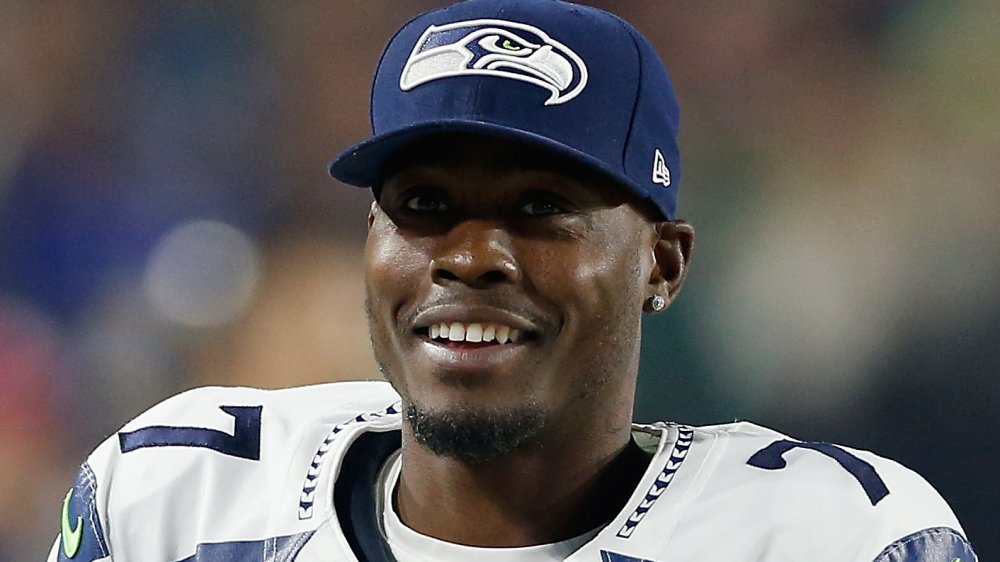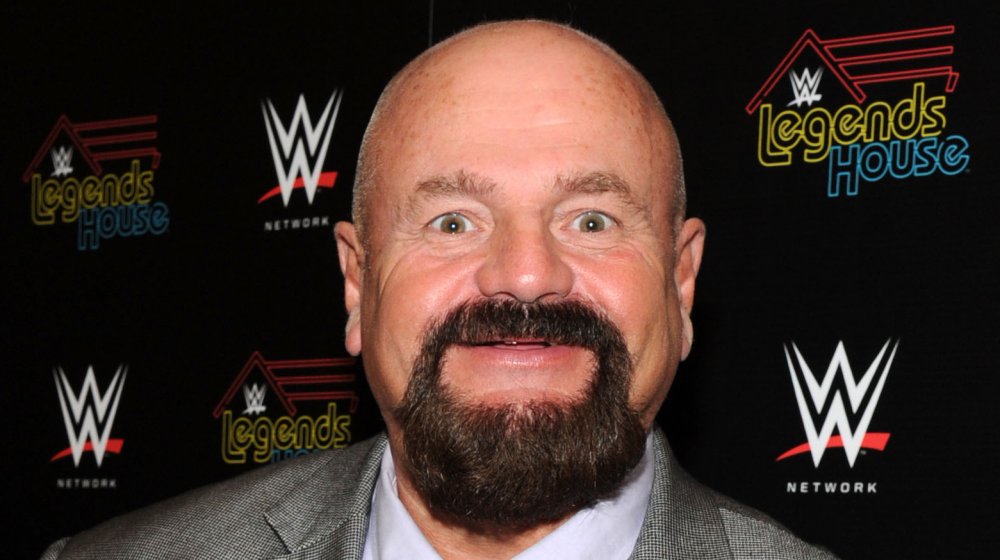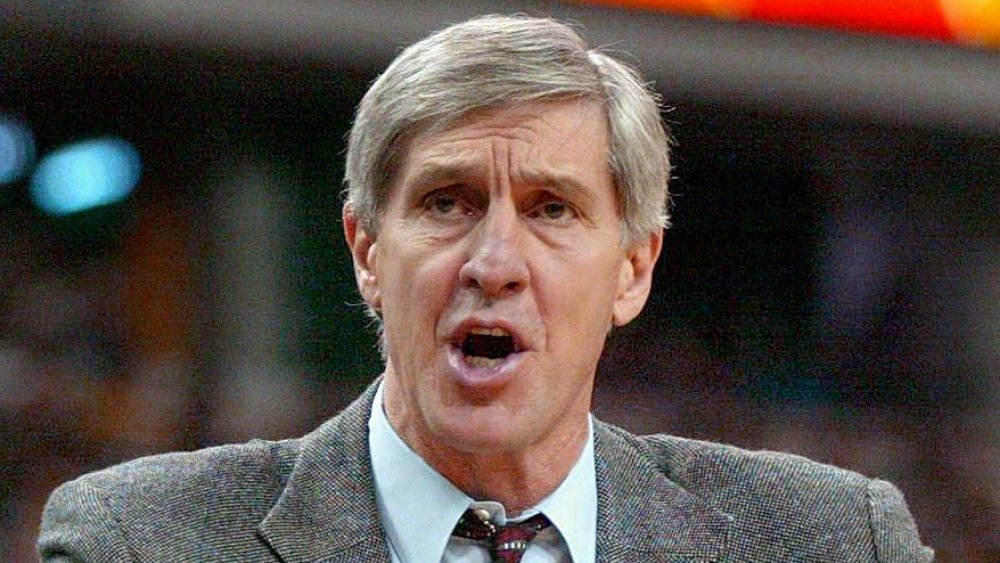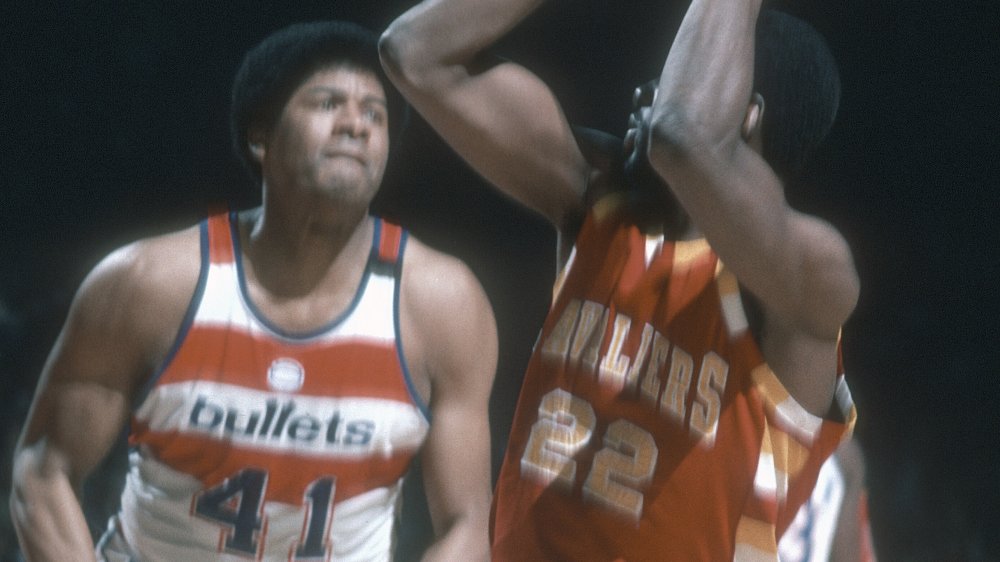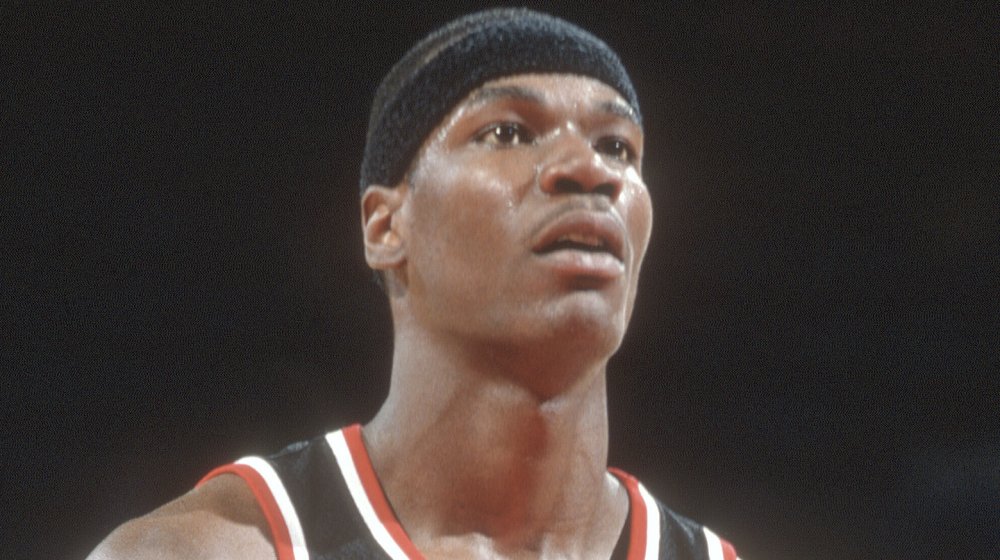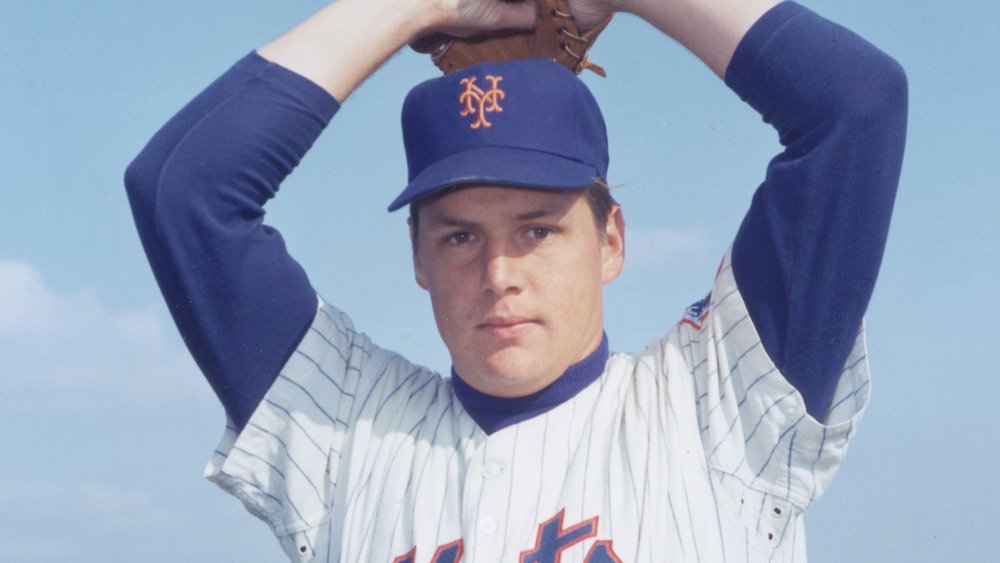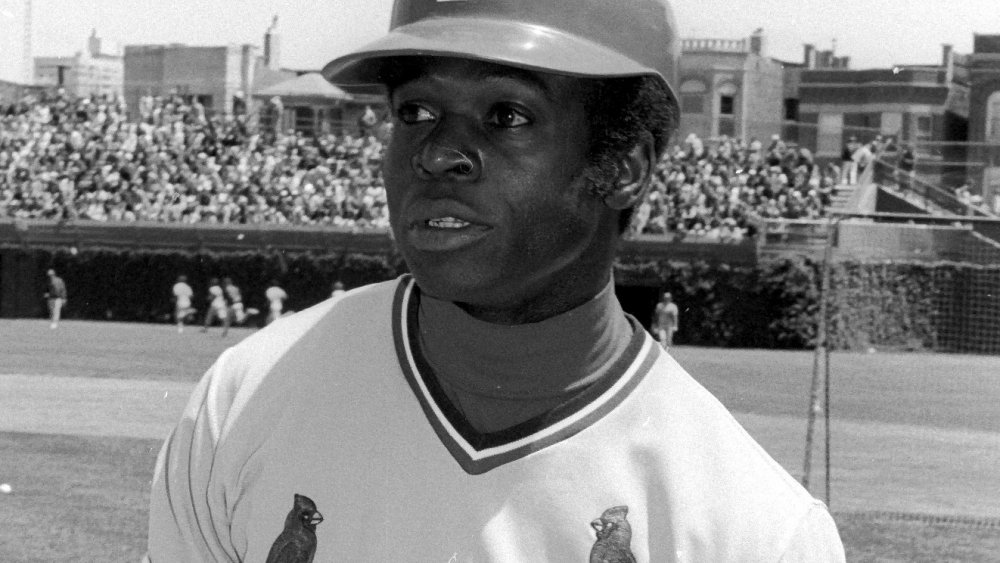Athletes We Lost In 2020
It's an odd and baffling thing when our collective heroes die. Those unique, special people who achieve fame, fortune, and glory by surpassing other skilled and talented athletes to become absolute legends in their chosen sport, seem untouchable if not immortal. After all, they've conquered the physical realm and pushed their bodies as far as they could go to impress, inspire, and entertain the world with their mind-boggling athletic accomplishments. But while the stats, video footage, and memories of what athletes do on the court, field, diamond, ring, or track, will live forever, those men and women will not. They're just like the rest of us, on this planet only temporarily and subject to the whims of the universe and the eventual frailty of the human body.
In 2020, as it is in every other year, the world lost a number of individuals who left an indelible mark on their sport.
Don Larsen was perfect when it mattered most
Don Larsen helped the New York Yankees reach four (of their eight) World Series in the 1950s, winning two. The journeyman pitcher also made brief stops with the St. Louis Browns, Baltimore Orioles, Kansas City Athletics, and San Francisco Giants, among others, and his stats won't put him into Hall of Fame contention: His win-loss record is 81-91 (including a league-worst 21 losses in 1954) and he struck out only 849 batters.
But Don Larsen will forever be a special part of baseball lore, because according to the Los Angeles Times, he's the first — and so far, only — pitcher to throw a perfect game in the World Series. In Game 5 of the 1956 Series, Larsen didn't let a single runner get on base. The Yankees went on to win it all in seven games, and Larsen was named the Most Valuable Player of the World Series.
After playing his final big-league game in 1967, Larsen switched careers to paper goods sales before retiring to Idaho in the early '90s. Larsen passed away from esophageal cancer on New Year's Day at the age of 90.
Rocky Johnson grappled with greatness
Even before the "Hulkamania" of the '80s, wrestling was hugely popular in America, and there were few athletes as important to the sport as Rocky Johnson. Born Wayde Bowles in Canada in the 1940s, CNN says he was out on his own by the age of 14, and found solace and purpose with boxing at a Toronto community center before a local wrestler encouraged him to switch sports. The man referred him to a wrestling school run by a trainer who'd launched the careers or several pros, such as Ivan Koloff and Killer Karl Krupp. In the mid-1960s, the renamed Rocky Johnson (taken from boxing legends Rocky Marciano and Jack Johnson) became a star in the National Wrestling Alliance along with other regional, televised circuits, becoming one of the most popular and recognizable wrestlers of his generation.
According to the WWE, Johnson joined the then-WWF in 1983 and built up rivalries with the likes of Greg "The Hammer" Valentine and Adrian Adonis, and with Tony Atlas comprised The Soul Patrol, the first African-American duo to win the organization's tag team championship belt. Johnson retired in 1991, but his influence remains prominent: He trained his son, Dwayne "The Rock" Johnson, who inducted his father into the WWE Hall of Fame in 2008.
Rocky Johnson died at his Florida home on January 15, 2020, at the age of 75.
Kobe Bryant was the most iconic basketball player of his generation
Every generation gets a basketball icon to call its own, a single player that makes a case for themselves as the greatest of all time: Wilt Chamberlain, Michael Jordan, LeBron James, and, for fans who followed the NBA in the early 2000s, Kobe Bryant.
As the Guardian reports, the achievements of the player who called himself the "Black Mamba" because he likened his relentless, victory-above-all-else mentality to that of a deadly snake, are staggering. Entering the league at just 18 years old, he played 20 seasons, all of them with the storied Los Angeles Lakers. In that time, he won five NBA titles, led the league in scoring twice, made it onto 18 all-star teams and 15 All-NBA squads, was named the league MVP in 2008, and finished his career in third place on the all-time scoring list. As he wore two jersey numbers during his career — #8 and #24 — the Lakers went ahead and retired both after Bryant wrapped up his career. Not one to leave quietly, the ultra-competitive Bryant scored an astounding 60 points in his final game, which isn't even his best single-game performance. That would be the 81-point show he put on against the Toronto Raptors in 2006.
On January 26, 2020, Bryant was traveling to his youth basketball complex in California when the helicopter crashed, killing all nine people on board, including Bryant, 41, and his 13-year-old daughter, Gianna.
Chris Doleman struck fear into the hearts of quarterbacks
Chris Doleman was a dominant defensive dynamo, one of the NFL's strongest points-preventer in the 1980s and 1990s. Drafted out of the University of Pittsburgh in 1985 with the fourth overall pick by the Minnesota Vikings, quarterbacks hated getting sacked by the defensive end and linebacker because he sacked so many guys. In 1989, he led the NFL with 21 sacks, at the time, the second-highest number in a single season. During stints with the Atlanta Falcons and the San Francisco 49ers, he led his squad in sacks — nine for the falcons in 1995, and 15 for the 49ers in 1998. His career total of 150.5 sacks placed him fifth on the all-time list. Doleman's achievements didn't go unnoticed — he was voted to the Pro Bowl eight times and was a first-team All-Pro selection on two occasions. The member of the Vikings Ring of Honor was inducted into the Pro Football Hall of Fame in 2012.
According to the NFL, Doleman struggled for two years against glioblastoma, an especially aggressive form of brain cancer, undergoing tumor removal surgery in 2018. Sadly, Doleman lost the fight on January 28, 2019, at the age of 58.
John Andretti successfully went into the family business
The Andrettis are the first family of IndyCar racing. Mario Andretti dominated competitors in the '60s, with son Michael following suit in the '80s. Mario's twin brother Aldo raced, and so did his son, John Andretti. And in 1991, John Andretti did his family proud by capturing the first race of the IndyCar season. Then in 1994, he became the first racer to compete in the storied Indy 500 and NASCAR's Coca-Cola 600 ... on the same day. It's a test of endurance so difficult that it's only ever been attempted three times since. From the mid-'90s on, Andretti concentrated on NASCAR, winning the 1997 Pepsi 400 and a 1999 contest at Martinsville Speedway. But always an Andretti, he never completely turned away from IndyCar, going on to race in five more Indy 500s.
Andretti struggled long and mightily against illness, having received a stage 4 colon cancer diagnosis in April 2017. He subsequently launched an online campaign (#CheckIt4Andretti) to persuade others to go get potentially lifesaving colonoscopies. In March 2018, he disclosed that he was cancer-free, but just two months later, he reported that the cancer had returned and spread. He passed away on January 30, 2020, at the age of 56.
Poeti Norac was a surfing champion and just getting started
Hailing from the French town of Les Sables-d'Olonne, Poeti Norac was an athlete to watch, a rising star in the rapidly growing sport of professional surfing. After learning how to surf from her father in the shortboard style at the age of six, Norac turned professional while still a young teenager. She also made a vital switch that was key to her success — moving from the short to the longboard style. In that division, Norac racked up a series of victories, including ten wins in the Coupe de France, notably the 2017 100% Girls competition. In the French national championships, Norac finished in second place in 2018 and third in 2016, and according to CNN, she'd recently moved to Australia to better pursue her sport in a more competitive venue.
On February 7, 2020, the French Surfing Federation confirmed to media outlets that Norac had died on the Sunshine Coast of Australia the previous weekend. The cause of death for the surfer was not immediately disclosed. Norac was 24 years old.
Tony Fernandez brought a World Series championship to Canada
After a couple of American League East titles in the 1980s, the Toronto Blue Jays went to the next level in the early '90s, winning back-to-back World Series titles in 1992 and 1993. Infielder and hit machine Tony Fernandez was there for almost all of it, playing for the Canadian MLB franchise from 1983 to 1990, rejoining in 1993, and eventually retiring from the game in 2001. Fernandez spent 12 of his 17 pro seasons in Toronto, and he was named an All-Star five times and was awarded a Gold Glove (for his fielding prowess, primarily at shortstop) four times. Offensively, Fernandez put up near-Hall of Fame numbers, cracking more than 2,200 hits with a lifetime .288 average and nearly 250 stolen bases. He's still the Blue Jays' all-time leader in games played, hits, and triples.
Fernandez struggled with kidney disease since 2017, and eventually, he developed pneumonia and was put into an induced coma. On February 16, 2020, he was taken off of life support and passed away. Fernandez was 57.
Mickey Wright was one the greatest golfers ever
It's not an understatement to say that Mickey Wright dominated her sport the way Serena Williams or Tiger Woods have at the peak of their careers. In 1999, the Associated Press named Wright the Female Golfer of the Century, and Golf Magazine called her the greatest of all time in 2009. After joining the LPGA in 1955, Wright won her first tournament the following season, and then her career exploded. Between 1958 and 1966, she won 13 majors — that's the most any woman would ever accumulate on the LPGA tour.
In every year from 1961 to 1964, Wright won at least ten tournaments each season. Her 82 total wins is second only to the 88 by Kathy Whitworth. Even before she went pro, Wright was a phenom, winning the 1952 USGA Girls' Junior Championship and the World Amateur title in 1954. Lingering foot issues led to Wright's retirement from the pro tour in 1969, but she still played occasionally, winning one more tournament in 1973. Three years later, she was inducted into the World Golf Hall of Fame.
Wright suffered a fall in early 2020 and had been hospitalized for a few weeks, suffering a fatal heart attack on February 17. The golf great was 85.
Nobody won more Stanley Cups than Henri Richard
In his 1955 to 1975 NHL career, hockey center Henri Richard did something that not even Wayne Gretzky, Gordie Howe, or Mark Messier could manage. Richard was a part of 11 Stanley Cup-winning teams, the most ever won by one player. That's because Richard spent his entire career with the Montreal Canadiens at a time of dynastic dominance of the NHL. Richard was a key part of the almost routine title-winning formula. The captain of the team for half a decade, he was also one of the best set-up guys in hockey history, leading the league in assists twice and finishing his career with 688 of them.
Richard was preceded in NHL success by his star brother, Maurice "Rocket" Richard. Because he was 15 years younger and three inches shorter, Henri Richard earned the nickname "The Pocket Rocket." Both Richard brothers were named to the NHL's list of its 100 greatest players in 2017, and both are members of the Hockey Hall of Fame. According to the New York Times, after a struggle with Alzheimer's disease, the Pocket Rocket passed away on March 6, 2020, at the age of 84.
War Emblem was one of the fastest thoroughbreds to ever race
The Triple Crown of horse racing is one of the rarest and most exciting achievements in sports. Over more than a century of thoroughbred racing, only 13 horses have won all three constituent races — the Kentucky Derby, Preakness Stakes, and Belmont Stakes. Before it happened twice in the 2010s, the last horse to win a Triple Crown was Affirmed in 1978.
In 2002, War Emblem nearly broke that drought, but still became one of the most accomplished horses of all time. First, the year-old colt won the Illinois Derby, then the victories kept coming. Within two months, War Emblem had also won the Kentucky Derby as well as the Preakness. The excitement was palpable among horse racing fans at post time at the Belmont Stakes about a possible new Triple Crown winner, only for War Emblem to stumble at the beginning of the race, ultimately finishing in eighth place (out of 11 spots). Still, the pretty pony recovered and won the 2002 Haskell Invitational.
By the time War Emblem retired, he'd won seven races out of 13 starts and earned $3.49 million for his handlers. After his racing days, War Emblem sired almost 200 foals and finished his life at a racehorse retirement center. He passed away on March 11, 2020 at age 21.
Chris Reed was a champion on the ice in the U.S. and Japan
Chris Reed was born and raised in Michigan, which provided a cold enough climate to help him become a world-class competitor in his sport of choice — ice dancing. With his partner and sister, Cathy, Reed competed in and won ice dancing events around the U.S., including a national amateur title, according to Yahoo.
Then in 2006, the pair decided they wanted to compete for their mother's home nation of Japan. Successfully petitioning the Japanese Skating Federation, the Reeds came to dominate their sport in their adopted but ancestral home, earning seven titles and competing in eight world championships. They competed in multiple ice dancing events in the 2010 Vancouver Olympics, the 2014 Sochi games, and after Cathy retired, Chris Reed teamed up with former singles ice dancing champion Kana Muramoto for the 2018 PyeongChang Winter Olympics, where, unfortunately, they didn't register high enough scores to medal.
Reed joined his sister in retiring from active competition in 2019 and had plans to stay heavily involved in ice dancing, as a coach and choreographer. Sadly, that didn't happen. On March 14, 2020, Reed died from a sudden and fatal heart issue. The former ice dancer was only 30 years old.
Curly Neal was a great Globetrotter
The Harlem Globetrotters are probably the most famous basketball team in the world, despite having never played in the NBA. Instead, the team barnstorms the planet, and has played in tens of thousands of exhibition games. Fans come to see a show, as its ever-changing roster of players put up effortless and seemingly impossible trick shots, stages humorous stunts, and otherwise engages in semi-scripted on-the-court shenanigans and banter.
While many have suited up for the Harlem Globetrotters, the guy most synonymous and emblematic of the team is Fred "Curly" Neal, the ironically bald-headed hipster who played in more than 6,000 games (in nearly 100 countries) from 1963 to 1985, according to ESPN. While renowned for his showmanship, Neal really could play — in his senior year at Johnson C. Smith University in North Carolina, he averaged 23 points per game, just before joining the Globetrotters. He's such an iconic player on such an iconic team that he's one of the few Globetrotters to have had his jersey retired (alongside fellow well-known teammates Goose Tatum and Meadowlark Lemon). Neal was also a Globetrotter during the team's pop cultural heyday of the 1970s, a time when he also starred on The Harlem Globetrotters Popcorn Machine TV show and in the TV movie The Harlem Globetrotters on Gilligan's Island.
Neal died at home, outside of Houston. The basketball legend was 77.
Al Kaline was 'Mr. Tiger'
In the mid-20th century, baseball players tended to stay with the same team for the entirety of their careers. While that was mainly due to restrictive labor contracts, players also did it out of loyalty, and there are few as loyal as Al Kaline. He spent his whole, storied, 22-season career with the Detroit Tigers, joining the team in 1953 upon graduating high school and staying through 1974. (That tenure is matched in Motor City longevity by only Ty Cobb.) During that time, Kaline amassed 18 All-Star appearances, 10 Gold Gloves in right field, more than 3,000 hits, nearly 400 home runs, and a batting title. In 1968, he won a World Series, helping the Tigers to defeat the St. Louis Cardinals with eight RBIs, two home runs, and a .379 average.
Upon leaving the field, Kaline joined the Tigers' broadcasting team, and after leaving that division in 2002, he stayed on as a special assistant to the team's general manager, and his duties included mentoring outfielders in spring training. Kaline was elected to the Baseball Hall of Fame in 1980, during his first year of eligibility, the same year that he became the first Tiger to have his jersey number (#6) retired by the team.
Kaline died at his home outside Detroit. He was 85.
Timothy Brown went from the NFL to M*A*S*H
Timothy Brown attended Ball State University with the goal of becoming a teacher, only for football to sidetrack him. A standout running back, he was drafted by the Green Bay Packers in the 1959 NFL Draft but was cut after one game. He then signed with the Philadelphia Eagles, where he helped hoist the 1960 NFL championship trophy ... after defeating the Packers. In 1966, Brown became the first player in NFL history to return two kickoffs for touchdowns in the same game, and retired after playing for the Baltimore Colts in Super Bowl III.
While a 10-year career as an NFL running back is certainly impressive, Brown is likely best known for his acting work. Along with appearances on episodic television like Remington Steele, T.J. Hooker, and S.W.A.T., Brown played Captain Oliver Harmon "Spearchucker" Jones during the first season of the mega-hit M*A*S*H. His character was a holdover from the movie version, but Jones was quickly phased out of the TV show. Eventually, Brown moved away from acting and worked as a probation officer and at a California juvenile detention center. On April 4, 2020, Brown passed away at the age of 82 from complications related to dementia.
Bobby Mitchell was an NFL great
Football was Bobby Mitchell's chosen sport, but he could've been a star in others — he was a baseball standout in high school and ran track along with playing football at the University of Illinois. Selected in the seventh round of the 1958 draft, he played four seasons as a halfback with the Cleveland Browns. In 1962, Mitchell was traded to the Washington Redskins, who converted him into a flanker. Also notable about Mitchell joining the Redskins: He became the team's first African-American, thus integrating the last team in the NFL that hadn't yet done so. After seven seasons in D.C., Mitchell retired, having amassed 7,954 yards, at the time the second-most combined offensive yards in league history. Mitchell additionally played in four Pro Bowls, was a three-time all-NFL selection, and in 1983 was inducted into the Pro Football Hall of Fame.
After his playing days were over, Mitchell didn't stray far from sports. He served as a scout and an assistant GM in Washington, and since 1980 held an annual golf tournament to raise funds for leukemia research. On April 5, 2020, the football great died. Mitchell was 84.
Colby Cave was just getting started in the NHL
It seemed unlikely that Colby Cave would be an NHL player in the first place. Born in the small town of Battleford, Saskatchewan, Cave played parts of eight seasons with three different minor league hockey teams in the U.S. and Canada. No NHL team ever even drafted the center, until the Boston Bruins signed him during the 2017-18 season. In the next campaign, Cave found himself suiting up for the Edmonton Oilers, where in the coronavirus-shortened 2019-20 season, he scored one goal in 11 games. All told, Cave played in 67 big-time hockey games with four goals and five assists, and had many more years to show the NHL his skills and talents. On April 7, 2020, Cave was airlifted to a Toronto hospital and underwent emergency surgery to remove a cyst placing pressure on his brain. Doctors placed Cave in a medically induced coma, but he never recovered. On April 11, Cave passed away at 25.
Tarvaris Jackson was a valuable reserve for the Vikings and Seahawks
Impressed with what they saw of his work as a quarterback at Alabama State University — where he had back-to-back seasons with more than 20 touchdowns averaging more than 2,500 yards — the Minnesota Vikings selected Tarvaris Jackson with the 64th pick in the 2006 NFL Draft. For five seasons Jackson served primarily as a backup QB (often to Brett Favre), but started in 21 games for the Vikings and helped the team to a division title in 2008. As a free agent in 2011, Jackson signed with the Seattle Seahawks and enjoyed a season as the starting QB, notching a 7-7 record despite a nagging muscle injury. Three years later, Jackson won a Super Bowl ring as the Seahawks' second-string QB behind Russell Wilson.
According to the Alabama Law Enforcement Agency (via WTOK), on the evening of Sunday, April 12, 2020, Jackson was driving outside his hometown of Montgomery, Alabama, when his car suddenly drove off the road, hit a tree, and overturned. After being transported to a nearby hospital, Jackson was pronounced dead. The former quarterback was 36.
Howard Finkel was the voice of wrestling
Howard Finkel is a member of the WWE Hall of Fame, but he's not much known for his prowess in the ring. But he was instrumental in the birth and rise of the planet's biggest wrestling organization. Finkel was the voice of the WWE as its ring announcer, debuting in 1977 when the company was known as the World Wide Wrestling Federation. When Vince McMahon established the WWF proper in 1980, his first official employee was Finkel. For more than 30 years, Finkel helped deliver the color and fun that made the WWE so popular on both regular broadcasts and major pay-per-view events, including WrestleMania, where he appeared every year from 1985 to 2016.
New champions could look forward to hearing Finkel, generally clad in a tuxedo, announce their name after his trademark "and the new" catchphrase. Not merely the guy who literally called the shots, Finkel got into the ring on occasion, such as when he defeated wrestling manager Harvey Wippleman in the memorable and aptly named Tuxedo Match of 1995. On April 16, 2020, Finkel passed away at the age of 69.
Marty Smith was a monster of motocross
Motocross combines the thrill of auto racing with other challenges — competitions are held "off-road," on dirt-lined courses dotted with hills and other obstacles with racers wearing only basic protective gear as they zoom around on their motorcycles at top speeds, both on the ground and while soaring through the air. According to CNN, Marty Smith was a major star in the sport in the 1970s. Overall, he won a whopping 18 national titles during his career, including the American Motorcyclist Association's 125cc in 1974 and 1975, and the 500cc in 1977. He retired from racing in 1981, and was later inducted into the sport's hall of fame and went on to mentor other champion-level racers.
On April 27, 2020, Smith, along with his wife, Nancy, and friends Lee and Tammi Ramage, were riding a dune buggy through the Imperial Sand Dunes in the California desert. The vehicle rolled at one point, not harming the Ramages but giving fatal injuries to the Smiths. Marty Smith was 63.
Jerry Sloan was a good basketball player, but a great coach
Michael Jordan is recognized as the greatest Chicago Bull, but the team's first star was Jerry Sloan. Taken away from the Baltimore Bullets by the Bulls in the 1966 NBA expansion draft, he led the team to its first playoff appearance in its first year of existence, according to ESPN. And in his sophomore season, Sloan had one of his best years, averaging 17.4 points per game and earning his first of two all-star selections. By the time he retired in 1976, he'd averaged 14 points per game and been named to four All-Defensive First Teams. In 1978, the Bulls retired his jersey, the first player in team history to land that honor.
Sloan was a stellar NBA player, but he was a legendary NBA coach. After three seasons with the Bulls, he moved on to the Utah Jazz, where he coached for a remarkably long tenure of 23 years. During that time, his teams made the playoffs 20 times and reached the NBA finals twice. He ranks fourth on the all-time wins list for coaches, and was inducted into the Naismith Memorial Basketball Hall of Fame in 2009.
According to a statement from the Utah Jazz, Jerry Sloan had struggled with Parkinson's disease and Lewy body dementia for years, and he passed away due to complications from them in the early morning hours on May 22, 2020, at his home in Salt Lake City. Sloan was 78.
Hana Kimura was a wrestler on the rise
Wrestling was the family business for Hana Kimura, the second woman in her family to go pro, following her mother, star Kyoko Kimura. According to The New York Times, the younger Kimura broke into the Wrestle-1 promotion in Japan in 2015 and first hit the ring in 2016. Kimura also performed and wrestled with the Sendai Girls' Pro Wrestling and Ring of Honor in the US. It's with the latter that she appeared as part of an epic, six-woman tag team match held during a sold-out slate at Madison Square Garden.
Outside of her sport, Kimura was a cast member on Terrace House: Tokyo, a Real World-esque Netflix reality show imported from Japan. Reportedly suffering from extensive online bullying and trolling, Kimura posted an alarming and cryptic "Goodbye" alongside a photo of herself and her cat on Instagram on May 21, 2020, and another post that read, "I love you, live long and happy. I'm sorry." Hours later, Kimura was found dead in her home in Tokyo, her death confirmed by a wrestling promotion on Twitter. The wrestler was 22 years old and, according to Sponichi Annex (via PopCulture), took her own life.
If you or anyone you know is having suicidal thoughts, please call the National Suicide Prevention Lifeline at 1-800-273-TALK (8255).
Wes Unseld was the best basketball Bullet
Only two players in the history of the NBA have ever made such an immediate and substantial impact on the game that they earned Rookie of the Year and Most Valuable Player honors for their debut season: Wilt Chamberlain and Wes Unseld. After a standout collegiate career at the University of Louisville, Unseld was selected second in the 1969 NBA Draft by the Baltimore Bullets. He spent his entire playing career (including five all-star selections) with the franchise, when it morphed into the Capital Bullets and then the Washington Bullets. In 1978, he led the team to its first NBA championship, winning Finals MVP accolades. Unseld was quite small for a center, standing 6'7" but making up for it with his tough and pugnacious play — according to ESPN, he scored more rebounds than anyone else in history who was 6'8" or shorter.
After his retirement in 1981, the Bullets retired Unseld's #41, a franchise first, and he was inducted into the Naismith Memorial Basketball Hall of Fame and named one of the NBA's 50 greatest players of all time, too. Unseld didn't stray far from Washington, putting in long stints in the NBA team's front office as a general manager and head coach. According to Unseld's family, he'd recently suffered from a variety of issues, including pneumonia. The NBA great passed away on June 2, 2020, at the age of 74.
Clifford Robinson helped make the Portland Trail Blazers contenders
In stacked 1980s college basketball, and the competitive NBA of the early '90s, Clifford Robinson helped bring to the top teams that few expected to go far. The University of Connecticut men's squad was mediocre throughout the '80s, until Robinson's contributions brought an NIT championship to the team in 1988. A year later, the Portland Trail Blazers drafted the headband-sporting "Uncle Cliffy." At 6'10", Robinson could play center, but instead he came off the bench as a forward because of his keen outside shooting abilities. Thanks in part to Robinson, the Blazers unexpectedly beat several powerhouses to make it to the NBA Finals in 1990 and 1992. In 1993, Robinson was named the league's Sixth Man of the Year, and the following season, he moved into Portland's starting lineup and made the league's All-Star team that year, too.
After seven seasons with the Blazers — where he still ranks among the franchise's all-time leaders in blocks, points, steals, rebounds, and three-pointers — Robinson rounded out an 18-year career with a 14.6 points-per-game average and stints in Phoenix, Detroit, Golden State, and New Jersey. In his retirement, Robinson competed on CBS's Survivor and became an advocate for therapeutic cannabis. According to The Oregonian, Robinson suffered a stroke in 2017, and on August 29, 2020, he passed away, per his family. The basketball star was 53.
Tom Seaver was one of the all-time great pitchers
Tom Seaver loomed large above baseball from the 1960s through to the 1980s. From his perch on the pitcher's mound, he absolutely dominated opposing batters. Entering the big leagues as a top prospect in 1967, he struck out 170 batters, won 16 games, and was named to his first of 12 National League All-Star teams. His work for the lowly New York Mets won him an award for Rookie of the Year, but he was just getting started. In 1969, Seaver won the first of three Cy Young Awards for his pitching prowess, winning 25 regular-season games and guiding the never-previously-good "Miracle Mets" to their first World Series that year. In a career that would last 20 seasons (with stops in Cincinnati, Chicago, and Boston), Seaver won 311 games (18th on the all-time list) and struck out 3,640 hitters. (Only five have ever thrown more.)
On Wednesday, September 2, the Baseball Hall of Fame – where Seaver was enshrined after a record-setting approval vote in 1992 — announced that he had died. After suffering from the effects of Lewy body dementia and a COVID-19 infection, the pitcher died in his sleep. Seaver was 75 years old.
Lou Brock was the fastest man in baseball
In the 1960s and 1970s, it was highly likely that St. Louis Cardinals great Lou Brock would get on base — he was only the 14th player to ever amass 3,000 hits in a career — and even more likely that he'd help himself to another base once he got there. Brock, a .293 lifetime hitter, led the National League in steals eight times, including 118 in 1974, at the time a single-season record. By the time he wrapped up his career in 1979, he'd stolen 938, also a record (which would later be surpassed), hit his way onto six All-Star teams, and helped power the Cardinals to three World Series in the 1960s, winning two of them.
After his retirement, Brock stuck around professional baseball, working as a broadcaster for the Cardinals and sharing his expertise in base-running as a consultant for the Montreal Expos, Minnesota Twins, Los Angeles Dodgers, and his Cardinals. The quickest man in his era of baseball was inducted into the Hall of Fame in his first year of eligibility.
In 2017, Brock was diagnosed with cancer and had endured a diabetes-related leg amputation. On September 6, 2020, the star passed away at the age of 81, according to CNN.
